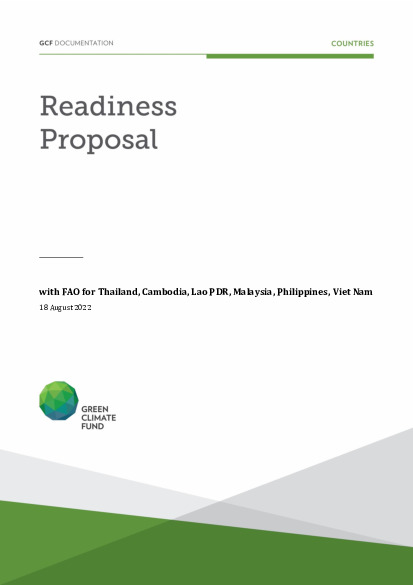Agriculture Sector Readiness for enhanced climate finance and implementation of Koronivia Joint Work on Agriculture priorities in Southeast Asia

Agriculture Sector Readiness for enhanced climate finance and implementation of Koronivia Joint Work on Agriculture priorities in Southeast Asia
Southeast Asia is home to several agriculture-dependent countries highly vulnerable to adverse climate impacts. According to the Global Climate Risk Index (2020), four South East Asian countries (Myanmar, Philippines, Vietnam and Thailand) were among the top ten countries most affected by extreme weather events such as cyclones and hurricanes between 1999 and 2018. These countries are among the countries that form the Association of Southeast Asian Nations (ASEAN), which has recently been engaging in shaping the directions of the Koronivia Joint Work on Agriculture (KJWA) under the United Nations Framework Convention on Climate Change (UNFCCC) through the ASEAN Negotiating Group on Agriculture (ANGA) and the ASEAN Climate Resilience Network.
Southeast Asian countries have piloted innovative and practical agricultural solutions to climate impacts, such as agro-advisories, participatory community- based approaches, and technology-based farm information and financial management technologies. Barriers to scaling-up such climate action include the risk and burden to farmers in adopting new climate resilient and low emission practices, fragmented planning and monitoring of field level measures to address climate change, and low capacity to access climate finance and leverage private sector engagement. Further regional collaboration to address these barriers can be more effective and potentially more efficient than individual countries acting alone.
The target goal of the project is to enhance the capacity of countries in Southeast Asia to develop national climate finance investment programmes and projects linked to adaptation and mitigation priorities for the agriculture sectors and exchange knowledge and learning to promote innovative mechanisms for public and private sector climate finance at national and regional levels. Specifically, the outcomes of the project aligned with the GCF Readiness Objectives and Outcomes will be:
- Agriculture investment programmes to strengthen GCF Country Programmes and leverage national, regional and global climate finance to support implementation of national, sector-specific climate change policy frameworks developed (Outcome 2.1);
- Development of quality GCF concept notes and proposals by building capacities of agriculture sector stakeholders and especially LDCs supported (Outcome 4.1); and
- Opportunities for knowledge capture, learning and dissemination on climate-friendly agriculture through partnership networks enhanced (Outcome 5.2).